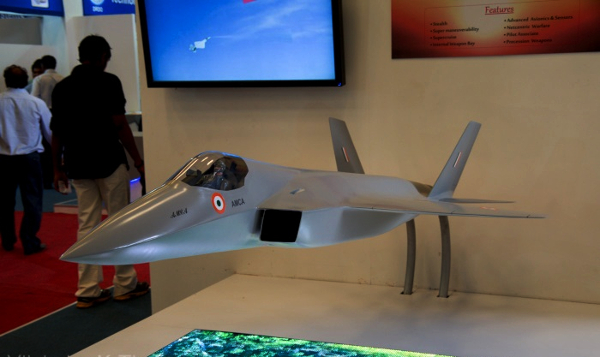NEW DELHI: In a strong push for indigenisation, the IAF has put its full weight behind the development of a home-grown fifth-generation fighter aircraft (FGFA) as well as shown its readiness to go in for 200 Tejas Mark-II light combat aircraft after inducting the first 123 Mark-I jets.
“We have no plans for importing a FGFA. The indigenous AMCA (advanced medium combat aircraft) has already been initiated…We are putting all our energy into it. IAF remains committed to indigenous development in consonance with the PM’s ‘Make in India’ initiative,” said Air Chief Marshal Rakesh Kumar Singh Bhadauria, who took over as the chief on September 30.
India had last year formally junked the proposed multi-billion dollar joint development and production of the FGFA called Sukhoi T-50 or PAK-FA with Russia on the grounds of economic and technical viability despite having completed the $295 million preliminary design contract inked in December 2010, as was then reported by TOI.
Now, the IAF’s full focus is on the futuristic twin-engine AMCA, with advanced stealth, multi-sensor integration and supercruise capabilities, to be developed in collaboration with DRDO, Aeronautical Development Agency and Hindustan Aeronautics (HAL). “The swing-role AMCA prototype should roll out of the hanger by 2024-2025, with the first test flight one to two years after that,” said a source.
In the near term, the IAF is banking upon the single-engine Tejas fighter to plug the shortfalls in the number of its fighter squadrons, which is down to just 30 (16-18 jets in each) when 42 are needed to tackle the collusive Pakistan-China threat.
IAF has so far signed contracts for the first 40 Tejas Mark-I jets, with the next deal with HAL for 83 improved Mark-IA fighters set to be inked soon. “After these 83, we hope to order Tejas Mark-II,” said ACM Bhadauria.
Sources said IAF has managed to reduce the price of each Tejas Mark-IA jet to Rs 309 crore in hard-nosed negotiations with HAL, which had earlier held that the overall deal with infrastructure and maintenance would cost Rs 49,797 crore. The Mark-II fighters, with more powerful engines, advanced avionics and enhanced fuel and weapons carrying capacity, in turn, will weigh 17-tonne as compared to the 12-tonne existing Tejas.
There is, of course, also the project to build 114 new fighter jets for over $20 billion (Rs 1.4 lakh crore) under the “strategic partnership” policy in a joint venture between a selected foreign aviation major and its Indian partner.
ACM Bhadauria said IAF would soon go to the defence ministry for preliminary approval or “acceptance of necessity” for the project, following which the RFP (request for proposal) will be issued. The seven contenders in this race are the Rafale (France), F/A-18 and F-21 (US), Gripen-E (Sweden), Sukhoi-35 and MiG-35 (Russia) and the Eurofighter Typhoon.
Source: ToI
Image Courtesy: DDN
You may also like
-
IAF Aircraft Set Course For Exercise Eastern Bridge VII At Oman
-
IAF Set To Host The Indian Defence Aviation Exposition-II At Jodhpur
-
Defence Secretary to co-chair 5th India-Philippines Joint Defence Cooperation Committee meeting in Manila
-
Simultaneous Launch Of ‘malpe And Mulki’, Fourth And Fifth Ships Of Asw Swc (Csl) Project
-
Aatmanirbharta in Defence: MoD signs Contract with HAL for 240 AL-31FP Aero Engines for Su-30MKI Aircraft
